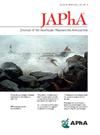PGY1 住院医师培训项目主任对在线药学学生的看法。
IF 2.5
4区 医学
Q3 PHARMACOLOGY & PHARMACY
Journal of the American Pharmacists Association
Pub Date : 2025-03-01
DOI:10.1016/j.japh.2024.102300
引用次数: 0
摘要
背景:虽然研究发现了一些特点可以提高学生进入研究生一年级(PGY1)住院实习的匹配机会,但还不清楚从在线药学课程毕业如何影响这些机会。我们的定性描述性研究旨在探讨住院医师培训项目主任(RPDs)对在线药学学生的看法,以及这些看法如何影响匹配排名:通过 ASHP 住院医师目录确定 PGY1 住院医师,通过电子邮件招募住院医师,并使用一组预先指定的开放式问题进行访谈。对访谈进行了数字录音和誊写,誊写内容用于编制共识代码以及相应的主题和次主题:对来自不同类型住院医师培训项目的 14 名住院医师进行了访谈。大多数住院医师对在线药学项目持积极或中立的看法。他们对这些项目中学生的看法不一,有些人赞扬学生的动力和积极性,而另一些人则认为懒惰是学习在线项目的动机。注册药剂师提到,在线药剂学课程可能会对学生的技能(如病人护理和沟通技能)产生负面影响,而其他人则认为这可能会对自我主张和时间管理技能产生积极影响。尽管存在这些顾虑,但注册药剂师重申,他们会采用与传统学生相同的标准和建议,这不会影响他们的排名:注册药剂师对在线药学课程及其学生的看法不一,有些人担心这些课程的性质会对住院医师所需的技能产生负面影响。尽管存在这些顾虑,但研究与教学人员重申,对这些学生的评估与对传统学生的评估并无不同。本文章由计算机程序翻译,如有差异,请以英文原文为准。
Perceptions of PGY1 residency program directors toward online pharmacy students
Background
While research has identified characteristics that improve students’ chances of matching into a postgraduate year 1 (PGY1) residency, it is unclear how graduating from an online pharmacy program affects these chances.
Objectives
Our qualitative descriptive study aimed to explore perceptions of residency program directors (RPDs) toward online pharmacy students and how these perceptions may affect match rankings.
Methods
PGY1 RPDs were identified using the American Society of Health-System Pharmacists Residency Directory, recruited via email, and interviewed with a set of prespecified open-ended questions. Interviews were digitally recorded and transcribed, with transcripts being used to develop consensus codes and consequent themes and subthemes.
Results
Fourteen RPDs from a variety of residency program types were interviewed. Most RPDs had positive or neutral perceptions towards online pharmacy programs. Their perceptions of the students in these programs were mixed, with some extolling drive and motivation, while others assuming laziness as motivation for pursuing an online program. RPDs mentioned that being in an online pharmacy program could negatively affect students’ skills, such as patient care and communication skills, while others felt it could positively affect self-advocacy and time management skills. Despite these concerns, RPDs reiterated they use the same criteria and advice as they would for traditional students and that it would not affect their ranking.
Conclusion
RPDs’ perceptions toward online pharmacy programs and the students in them were mixed, with some being concerned the nature of these programs would negatively impact skills needed for residency. Despite these concerns, RPDs reiterated these students will be assessed no differently from traditional students.
求助全文
通过发布文献求助,成功后即可免费获取论文全文。
去求助
来源期刊
CiteScore
3.30
自引率
14.30%
发文量
336
审稿时长
46 days
期刊介绍:
The Journal of the American Pharmacists Association is the official peer-reviewed journal of the American Pharmacists Association (APhA), providing information on pharmaceutical care, drug therapy, diseases and other health issues, trends in pharmacy practice and therapeutics, informed opinion, and original research. JAPhA publishes original research, reviews, experiences, and opinion articles that link science to contemporary pharmacy practice to improve patient care.

 求助内容:
求助内容: 应助结果提醒方式:
应助结果提醒方式:


